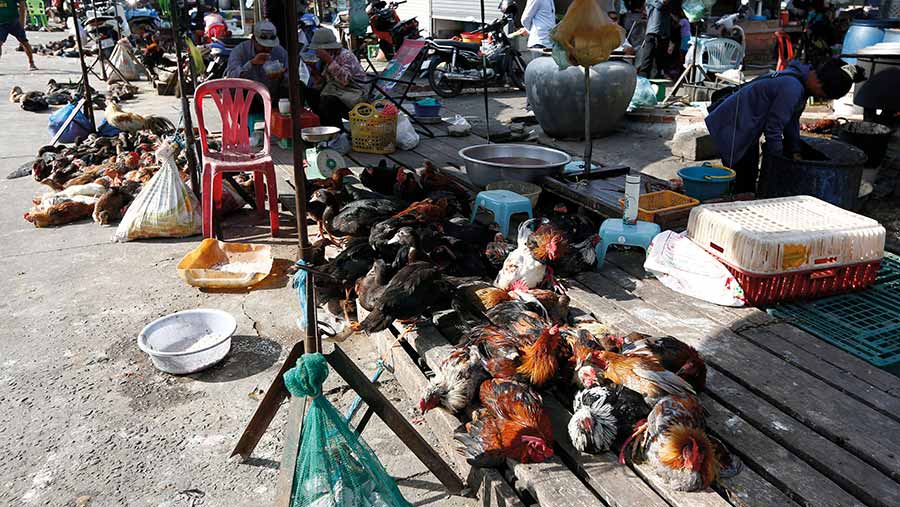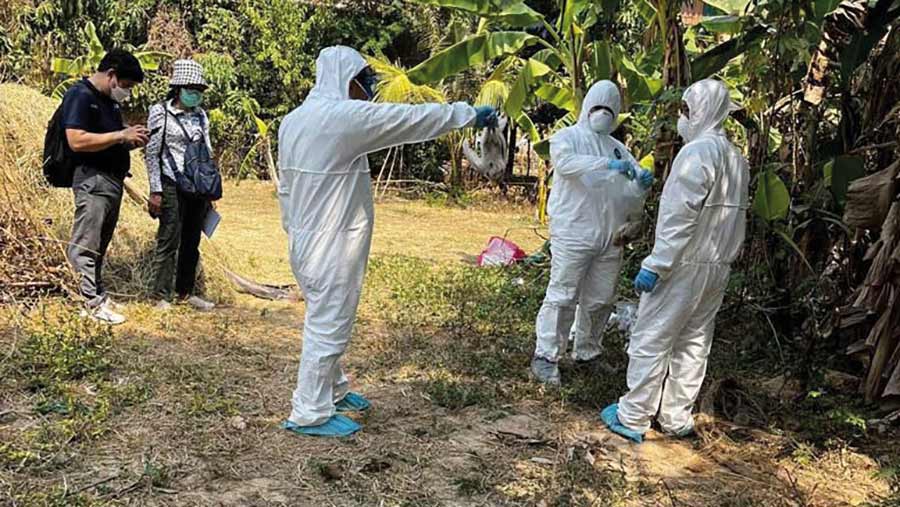Government steps up precautions against human bird flu spread
 Poultry in Cambodia have been linked to a recent human fatality from bird flu © Kith Serey/EPA-EFE/Shutterstock
Poultry in Cambodia have been linked to a recent human fatality from bird flu © Kith Serey/EPA-EFE/Shutterstock Health officials are meeting to discuss Covid-style contingency plans to control the potential human-to-human spread of avian influenza.
Despite a very limited risk of spread to humans, officials are considering the distribution of lateral flow tests to monitor for the disease, according to a UK Health and Security Agency (UKHSA) update.
The agency is also developing blood tests to identify those who have been exposed to the disease, and carrying out DNA testing of the virus to look for mutations.
See also: Avian influenza prevention tips and how to handle an outbreak
Concerns about the virus spreading to humans have been heightened after the death of a girl infected with the H5N1 strain of the disease in rural Cambodia.
It is the same strain of the virus that has caused the worst-ever bird flu outbreak in poultry flocks worldwide.
In England there have been 147 cases since 1 October 2022, while Scotland has had 21 cases, Wales, five, and Northern Ireland, one.
Health officials are scheduled to discuss the issue today (27 February), according to The Times.
Low risk
There is sound evidence that the H5N1 strain is rarely passed from bird to human, and a low risk of transmission among people.
Of 2,310 people who had been in contact with infected birds between 1 October and 14 February, nobody contracted the disease, UKHSA monitoring showed.
UKHSA’s incident director for avian influenza, Meera Chand, confirmed: “The latest evidence suggests the virus we’re seeing circulating in birds does not currently spread easily to people.”
However, she stressed it was better to take a cautious approach.

Disinfecting village in Prey Veng in Cambodia © Cambodia Ministry of Health/AP/Shutterstock
“Viruses constantly evolve and we remain vigilant for any evidence of changing risk to the population,” Dr Chand said.
Robert Gooch, chief executive of the British Free Range Egg Producers Association, said the risk to flockkeepers seen over the past few years remained unchanged.
“The extremely rare cases of transmission to humans have been through very close contact where infected birds were allowed into the farmhouse and treated as pets,” Mr Gooch said.
When bird flu symptoms do appear, flockkeepers must contact their vet or immediately notify the relevant authority in their region.
Government vets would then take over and monitor staff for any signs of the disease, he added.
